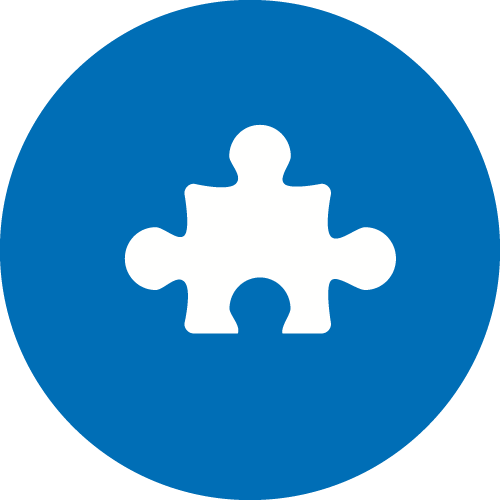Iceland: Clearing snow produced health benefits
When the world shut down and we were instructed to stay at home, those in charge of the town of Akureyri, the biggest town in northern Iceland with nearly 20,000 inhabitants, wanted to make sure that residents would get out and about.


Snow clearance in Iceland in the town of Akureyri to reduce social isolation.


When the pandemic began, many people chose to stay at home to avoid Covid infection. But in Iceland, residents at a national level were urged to go out and exercise, instead of becoming socially isolated in their homes. In the town of Akureyri, the biggest in northern Iceland, schoolchildren were an important target group. The idea was that they should be able to get to school easily. In addition to the schoolchildren, the target group included anyone who needed and wanted to get out and exercise.


Once the pandemic was a reality, Ásthildur Sturludóttir, Mayor of Akureyri, together with researcher Halldór S. Guðmundsson, who at the beginning of the coronavirus pandemic was working as temporary assistant to the Mayor, began to think about what they could do to make it as easy as possible for residents of the town to actually get out.
“We didn’t want people to be staying at home. One of the most important things we came up with was to start clearing snow on all walkways. Akureyri isn’t a big town in terms of its area, but we have a large network of walkways, and you use them to get everywhere,” says Sturludóttir.
As early as 16 March, five days after the WHO had declared COVID-19 to be a pandemic, the extra snow clearance measures were announced on Akureyri’s website. A few days later, Icelandic public broadcaster RUV picked up on the news. They wrote in an article (translation using Google Translate):
“Residents of Akureyri are urged to take advantage of the area’s various opportunities for outdoor activity, now that gatherings are banned and sports activities are being disrupted. Special emphasis has been placed on clearing snow from the main walking trails.”


Halldór S. Guðmundsson, who is currently Professor in Social Work at the University of Iceland, has previously conducted research into stress and knows what impact stress has on people, and how to counteract it.
“There’s research to show that it’s beneficial for a stressed person to go out into nature, it’s an important element of our health,” he says.
In a brand new Icelandic article entitled The benefits of natural therapy for stress and burnout (in the process of publication) by Guðmundsson and his colleagues Hervör Alma Árnadóttir and Berglind Magnúsdóttir, they write that nature is seen as a rejuvenating and health-promoting environment for people suffering from mental fatigue – which most people experienced when the pandemic became a reality.
Health-promoting environments include those that help people regain the strength and capacity they have lost due to pressure and stress. Complex natural surroundings offer stimulation for the senses. For example, shifting seasons, changing weather and light, noise and silence all offer ways to relieve stress.
“The consequences of stress are related to the capacity of individuals to cope with stress,” says Guðmundsson.
Chronic stress can result in burnout, which manifests itself in fatigue and exhaustion, reduced initiative and physical endurance, and is one of the main causes of absence from work.
Another way to reduce stress is to meet other people. Due to the pandemic, everyone was forced to keep their distance to prevent the spread of infection. Outdoors in Akureyri and elsewhere in Iceland, there was still an opportunity to meet friends, as long as you maintained sufficient distance.
“Some people exercise every day, so we were forced to find alternatives. Clearing snow became important, but also a natural response. We didn’t have too many other options,” says Guðmundsson.
Gender-equal snow-clearing, which started in Karlskrona in Sweden in 2013, served as a source of inspiration for the snow clearance initiative. Gender-equal snow-clearing means that snow is cleared first of all from footpaths, making it easier for those such as pedestrians and people with prams to get around, instead of starting by clearing snow on the roads.
Just as with gender-equal snow-clearing, the snow in Akureyri was shovelled away first of all from the footpaths, and only then on the roads.


According to Mayor Ásthildur Sturludóttir, the residents of Akureyri were extremely grateful for the town’s efforts concerning snow clearance.
“Even though gyms and all other venues were closed, they could at least go out for a walk, run, cycle or go skiing,” she says.
It was, however, still not possible to organise large outdoor events, as people from different households were not to have contact with each other, in order to avoid risks of infection.


There are unfortunately no instruments that count the number of pedestrians or cyclists moving around in Akureyri, but both Sturludóttir and Guðmundsson are convinced that the health benefits have been significant.
Local associations also began to set up activities such as ski trails in nature.
“So it was by no means just the municipality that wanted to find ways for people to spend time outdoors,” says Guðmundsson.
A lot of other Icelandic towns also started to initiate extra snow clearance activities in order to enable people to move around freely outdoors.


In practice, it was easy to organise extra snow clearance in Akureyri. The town has a contractor that takes care of snow clearance, also in normal times.
“During the pandemic, there was a little more work for them than usual, so it also became more expensive for the municipality, but not by much,” says Mayor Ásthildur Sturludóttir.
Some of the money was allocated from other planned activities that could not take place because of the pandemic.
“We were able to move money around to make snow clearance a reality,” says Sturludóttir.


As the idea for the snow clearance initiative came from gender-equal snow-clearing, which started in Karlskrona in Sweden. The idea is easy to implement in other places in the Nordic region where they have a lot of snow in the wintertime.
“You don’t always have to overthink things. It was an extremely simple measure that had a big impact. I think we did the right thing,” says Ásthildur Sturludóttir, Mayor of Akureyri.